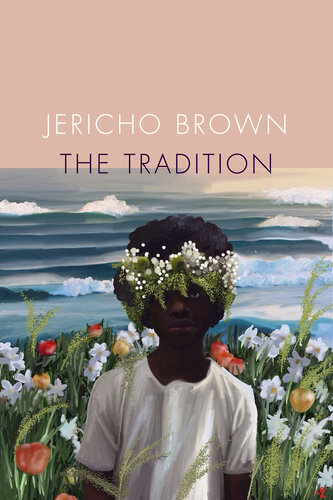
The Tradition
کتاب های مرتبط
- اطلاعات
- نقد و بررسی
- دیدگاه کاربران
نقد و بررسی

Starred review from April 22, 2019
The searing third collection from Brown (The New Testament) begins with the luminous “Ganymede,” in which Heaven is described as “that far terrain/ between Promise and Apology.” Brown inextricably weaves exploration of race, religion, and social burden: “I am a they in most of America./ Someone feels lost in the forest/ Of we, so he can’t imagine/ A single tree. He can’t bear it./ A cross. A crucifixion. Such/ A Christian.” While such lines exemplify Brown’s musical ear, his rhetorical skill shows itself in the directness of his most profound lines. In “The Long Way,” he states plainly: “Your grandfather was a murderer./ I’m glad he’s dead.” With a Elizabeth Bishop-like clarity, the speaker describes card tables as “Slick stick figures like men with low-cut fades/ Short but standing straight/ Because we bent them into weak display.” Brown’s invented form, the duplex—a combination of sonnet, ghazal, and blues—yields compelling results, perhaps most arrestingly in its use of enjambment: “The opposite of rape is understanding/ A field of flowers called paintbrushes.” While many poems engage in formal play, Brown’s rhythms are always rooted in that of a wounded, beating heart, so that even the speaker of an ode to peaches must “choose these two, bruised.” Brown’s book offers its readers a communion of defiant survival, but only “Once you’ve lived enough to not believe in heaven.”

Starred review from March 1, 2019
Brown's third collection (after The New Testament) pulsates with the acute anxieties of racial and sexual difference, the psychologically complex intersections of personal intimacy with social responsibility ("I'm sure/ Somebody died while/ We made love. Some-/ Body killed somebody/ Black. I thought then/ Of holding you/ As a political act.") and the inescapable legacy of violence and pain intrinsic to vulnerable lives in an unjustly constructed world ("The way anger dwells in a man/ Who studies the history of his nation"). A consummate craftsman, Brown conveys emotional and provocative content through plainspoken yet subtly lyrical forms whose delicacy only heightens the subversive force of his ideas, which can be delivered with unabashed, declarative candor (e.g., water lilies "are good at appearances. They are white"). VERDICT Though many poems here risk intruding on some readers' comfort zones, Brown's uneasy fusion of art, conscience, eroticism, and rage--like any serious poetry worth close attention--aspires to greatness within the fragmented immediacies of our historical moment while suggesting a shared human destination: "A poem is a gesture toward home." [An editor's pick, LJ 2/19, p. 23.]--Fred Muratori, Cornell Univ. Lib., Ithaca, NY
Copyright 2019 Library Journal, LLC Used with permission.

























دیدگاه کاربران